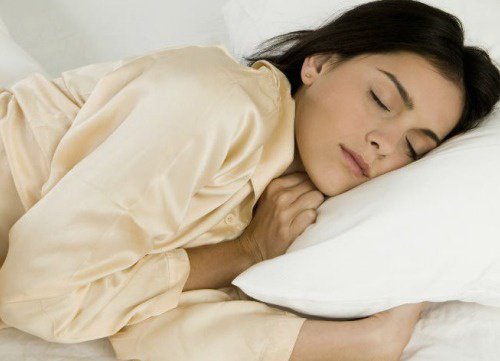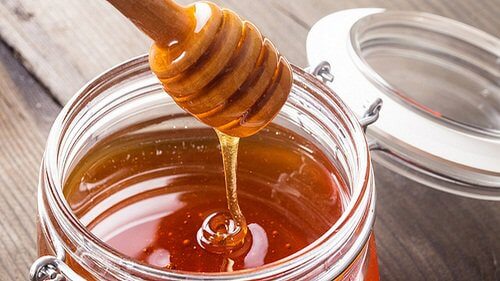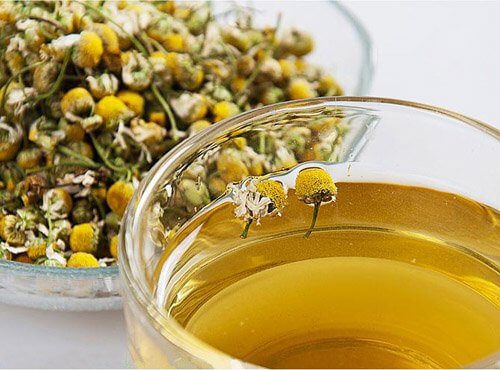The 8 Best Foods for a Good Night’s Sleep

If you’re having trouble getting a good night’s sleep, it could be because you’re eating too many heavy foods with dinner or that your diet isn’t entirely healthy.
In today’s article we’ll tell you about some of the best foods for a good night’s sleep. Avoid insomnia naturally!
Step one: Find out if you’re sleeping poorly
If it’s not often that you don’t get a good night’s sleep, there’s probably no reason to be alarmed. But if this is happening every day or getting worse, you might be suffering from insomnia.
This condition is characterized by an inability to sleep during the night, or taking a long time to fall asleep after you go to bed until you finally slip into a dream (sometimes right before the sun rises or your alarm clock sounds).
In most cases, insomnia is caused by stress, nerves, and anxiety, but personal problems and what you eat can also have an impact. It could also be caused by sleep apnea, cardiovascular problems, or depression.
What foods could help you get a good night’s sleep?
If you’re unable to get a good night’s sleep and you suspect it might be due to your diet, before you go to bed tonight try eating one or more of these foods instead:
We recommend you read: A trick for insomnia: salt and sugar
Foods that are rich in protein
These will make you feel satisfied without eating too much. You don’t have to fill your plate and eat a huge dinner. Among the best options are:
- Fresh fruit
- Cheeses
- Eggs
- Hot chocolate
Turkey
Turkey is rich in tryptophan, a substance that helps you feel full immediately. But as anyone who’s eaten Thanksgiving dinner can tell you, tryptophan also promotes deep sleep and rest.
Try having a serving of turkey with vegetables for dinner a few times a week and you’ll notice the difference.
Water

Don’t forget to hydrate your body throughout the day, but especially at night. Before you go to bed, drink a glass of warm water.
If it’s cold outside, you can substitute herbal tea (but avoid coffee, sodas, or packaged juices).
Bananas
Bananas contain two very important nutrients that act as a natural sleeping pill: melatonin and tryptophan, which we already mentioned above.
Bananas also contain magnesium to relieve physical tension. Eating a banana for dessert signals your brain to tell your body it’s time to sleep.
Honey

A glass of warm milk with a tablespoon of honey is the sweetest way to rest peacefully. It reduces the levels of a hormone known as orexin, whose job is to activate the waking state. Once it has been suppressed, you’ll fall asleep almost instantly.
Oatmeal
Oatmeal is rich in fiber and when eaten hot, it’s soothing to the stomach. You’ll sleep with ease if you have oatmeal for dinner.
You can also consume a bowl of oats with warm milk about an hour before going to bed. As soon as you close your eyes you’ll be out cold!
Chamomile

For a good night’s sleep, you can also drink a cup of chamomile tea before going to bed.
Ingredients
- 1 tablespoon of dried chamomile flowers (15 g)
- 1 cup of water (250 g)
Preparation
Bring the water to a boil and add the dried flowers. Simmer for two minutes and remove from heat. Cover and let steep, then strain the liquid and sweeten the tea with a teaspoon of honey.
This beverage relaxes your mind and body, telling your muscles it’s time to rest.
Whole grain bread
Did you know that a slice of bread can trigger your body to release insulin? It travels through your bloodstream and produces serotonin, a chemical that eases depression and reduces your state of alertness.
This will help you sleep at night in peace. And imagine if you combine a piece of toasted bread with a little honey!
What can you eat for dinner to prevent insomnia?
Aside from the foods we’ve listed above, it’s a good idea to create certain menus that contain the necessary ingredients to satisfy your appetite while reducing anxiety or stress at the same time.
You’ll be pleased by the results because you’ll sleep better. Your body will be able to recharge itself during the night, your immune system will be stronger, and more.
Here are some ideas for dinners that will help you sleep.
Pasta with mixed vegetables
Try this healthy and delicious meal. Serves two.
Ingredients
- 300 grams of whole grain pasta
- 1 potato
- 2 carrots
- 1 tomato
- 1/4 cabbage
- 1 head of broccoli
- Salt and pepper to taste
- The juice from 1 lemon
- Tomato sauce to taste
Preparation
- Peel the carrots and potato and cut them into cubes. Chop the tomato, broccoli, and cabbage.
- Heat some water in a saucepan until it comes to a boil, and cook the vegetables for about 15 minutes.
- In a separate saucepan cook the pasta until it’s al dente, about 10 minutes depending on what kind of pasta you choose.
- Toss everything together in a skillet and add a little olive oil, seasoning, and the tomato sauce.
- After six minutes, add the lemon juice.
- You can sprinkle some grated Parmesan cheese on top, if desired.
Fruit salad with cheese
This is a rich and all-natural dish. It’s perfect for dessert!
Ingredients
- 1 apple
- 4 slices of melon
- 4 slices of watermelon
- 1 kiwi
- 1 orange
- 4 slices of papaya
- 4 slices of pineapple
- 100 g of cottage cheese
- 4 tablespoons of honey (100 g)
Preparation
- Wash and slice the fruit.
- Place them at random around the edges of a dessert plate.
- Put the cheese in the center and drizzle honey over everything.
- You can add this to the fridge for a few minutes before serving.
With the help of these eight foods, in addition to healthy habits, we hope you can finally get that good night’s sleep that your body and mind need.
All cited sources were thoroughly reviewed by our team to ensure their quality, reliability, currency, and validity. The bibliography of this article was considered reliable and of academic or scientific accuracy.
- Cano Romero, Juan Fernando, & Diago García, Johanna. (2005). Insomnio: enfoque diagnóstico y terapéutico. Iatreia, 18(1), 60-70. Retrieved January 16, 2019, from http://www.scielo.org.co/scielo.php?script=sci_arttext&pid=S0121-07932005000100005&lng=en&tlng=es.
- Carrillo-Mora, Paul, Ramírez-Peris, Jimena, & Magaña-Vázquez, Katia. (2013). Neurobiología del sueño y su importancia: antología para el estudiante universitario. Revista de la Facultad de Medicina (México), 56(4), 5-15. Recuperado en 16 de enero de 2019, de http://www.scielo.org.mx/scielo.php?script=sci_arttext&pid=S0026-17422013000400002&lng=es&tlng=es.
- de Agustín, P., & María, J. (1979). El sueño y el insomnio. Arbor, 103(402), 207.
- Prospéro-García, Oscar, Méndez Díaz, Mónica, Alvarado Capuleño, Ilia, Pérez Morales, Marcel, López Juárez, Jehú, & Ruiz Contreras, Alejandra E.. (2013). Inteligencia para la alimentación: alimentación para la inteligencia. Salud mental, 36(2), 109-113. Recuperado en 16 de enero de 2019, de http://www.scielo.org.mx/scielo.php?script=sci_arttext&pid=S0185-33252013000200002&lng=es&tlng=es.
- Puerto, M., Rivero, D., Sansores, L., Gamboa, L., & Sarabia, L. (2015). SOMNOLENCIA, HÁBITOS DE SUEÑO Y USO DE REDES SOCIALES EN ESTUDIANTES UNIVERSITARIOS. Enseñanza e Investigación en Psicología, 20(2).
This text is provided for informational purposes only and does not replace consultation with a professional. If in doubt, consult your specialist.








